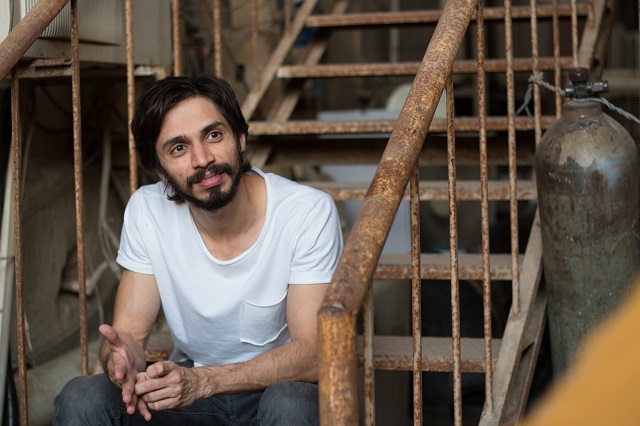
“A lot of people weren’t supportive; they would laugh off my ambitions,” Kamal says. “It is embedded in our culture; people don’t support anything out of the norm.”
His first feature film Laal Kabootar, out in March 2019, certainly strays from what the burgeoning film industry has to offer. It is a Karachi-based crime drama that’s been a long time coming. After Kamal moved back to Pakistan in 2007, he worked at MTV and Coke Studio. While training under Rohail Hyatt, an overheard conversation made him decide he would make his first film by the time he was 30. And he has been working towards it since, paying scriptwriters, directing smaller projects and keeping on.
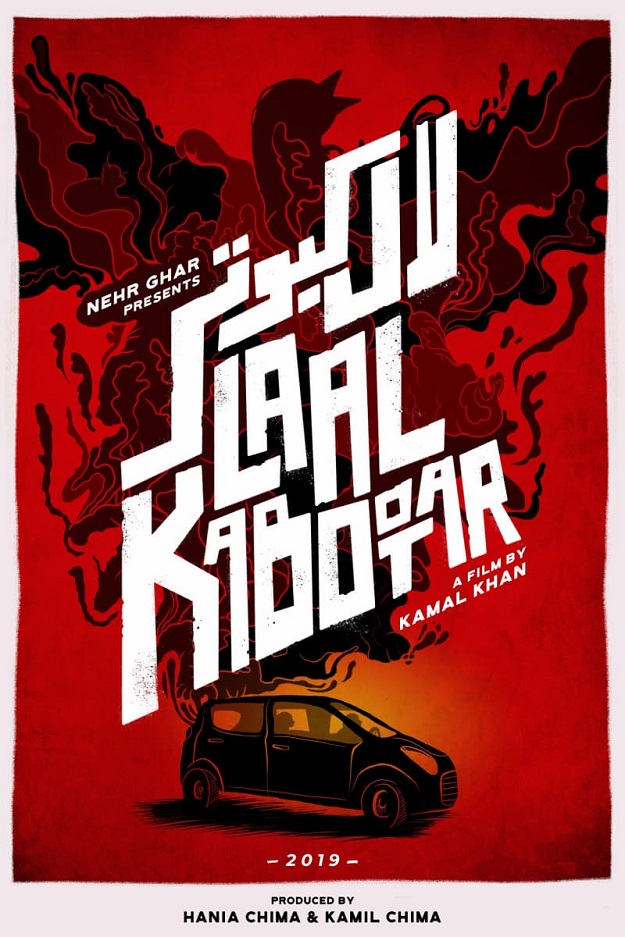 Poster and promotional image for Laal Kabootar.
Poster and promotional image for Laal Kabootar.He speaks critically of his past projects, where he could have improved and how he hopes to. You can tell he wants his work to near perfection and is willing to spend the time carving it out, chiseling away until the story beneath reveals itself in just the right way. He’s excited by the challenge mistakes offer, “I like the idea of doing something not so well, and coming back and doing it better. I want to come back strong.”
But much before encountering barriers to entry, cultural norms mold the ways we see lives playing out. Kamal didn’t grow up dreaming of making movies; he went to business school and walked out of his first finance class. He says he couldn’t pretend to be someone else. He was always watching movies, making them on a friend’s camcorder when he was in school, his love for the medium staring him in the face. It didn’t occur to him it was even an option until a friend suggested he try out film school.
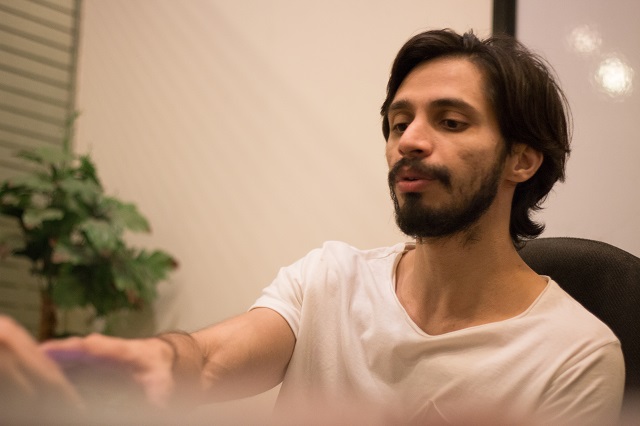 Kamal Khan. PHOTO:Narendar Kumar
Kamal Khan. PHOTO:Narendar KumarHis success is also testament to how community becomes an antidote to industry cynicism. He attributes his survival to friends who took a chance on him and gave him both his first commercial and first music video. One such friend from the rock group D/A Method contacted Kamal about working on a short film as a music video for The Desert Journey. Kamal and photography director Mo Azmi created a seven minute long video filmed in a single take, the camera following the characters of a seedy brothel washed in pale yellow light.
At the 2017 Lux Style Awards, Kamal lost the Best Music Video award for The Desert Journey to himself. He won it for Zoe Viccaji’s Ho Jao Azad music video. It was the first time someone was nominated for two videos in the same category at LSA.
He says Laal Kabootar is in the same vein of the Desert Journey movie – gritty and raw – an aesthetic he has proved he can handle with distinction. When talking about his work, Kamal names the actors, screenwriters and producers that have made his new work possible. This includes the sibling duo Hania and Kamil Cheema of Nehr Ghar Productions who reached out to him with an idea for a film. They clicked over their first phone conversation and developed that idea over the next two years.
“I definitely think I’m part of the next generation,” he says when asked about his place in the film landscape. “There’s a bunch of us and we’re different.”
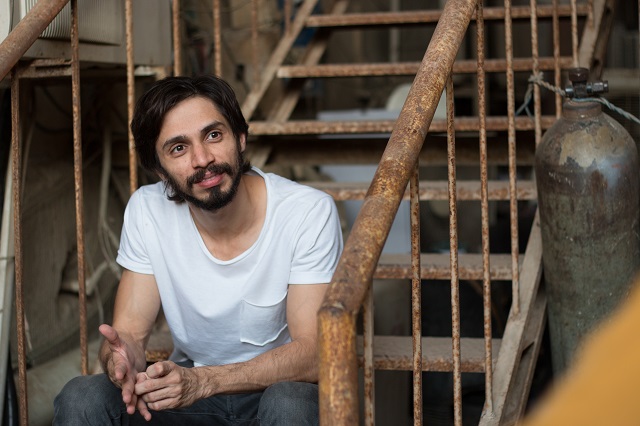 Kamal Khan. PHOTO:Narendar Kumar
Kamal Khan. PHOTO:Narendar KumarWhile this is a product of greater access to different kinds of storytelling the internet allows Kamal and his contemporaries want to experiment with new styles and challenge the status quo instead of making money off of it. This doesn’t mean that money isn’t an issue for cinema with less commercial appeal. A lack of cinema screens means films are replaced quickly with new releases, curtailing their revenue potential. But he believes there’s a market regardless and welcomes new mediums for distribution like Netflix.
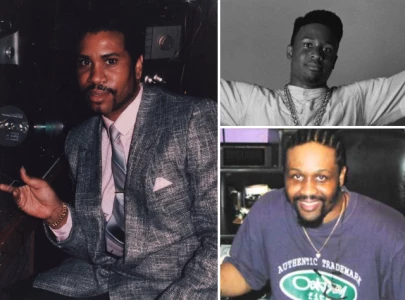




1732361617-0/Untitled-design-(4)1732361617-0-270x192.webp)

1732308855-0/17-Lede-(Image)1732308855-0-270x192.webp)









COMMENTS (1)
Comments are moderated and generally will be posted if they are on-topic and not abusive.
For more information, please see our Comments FAQ